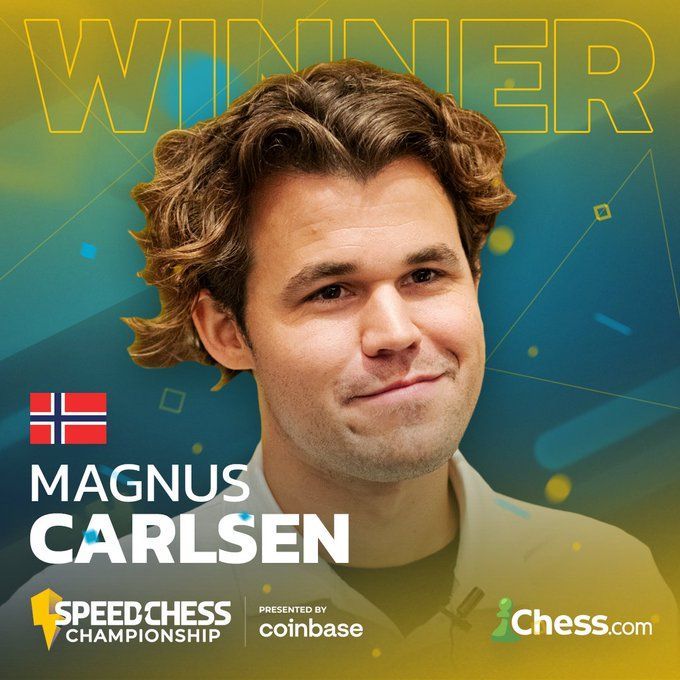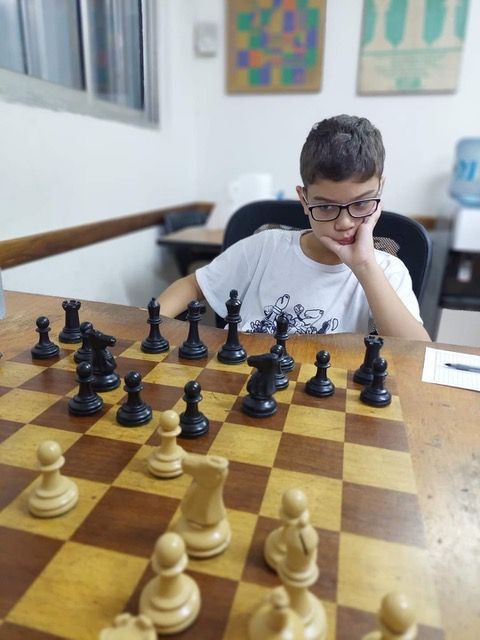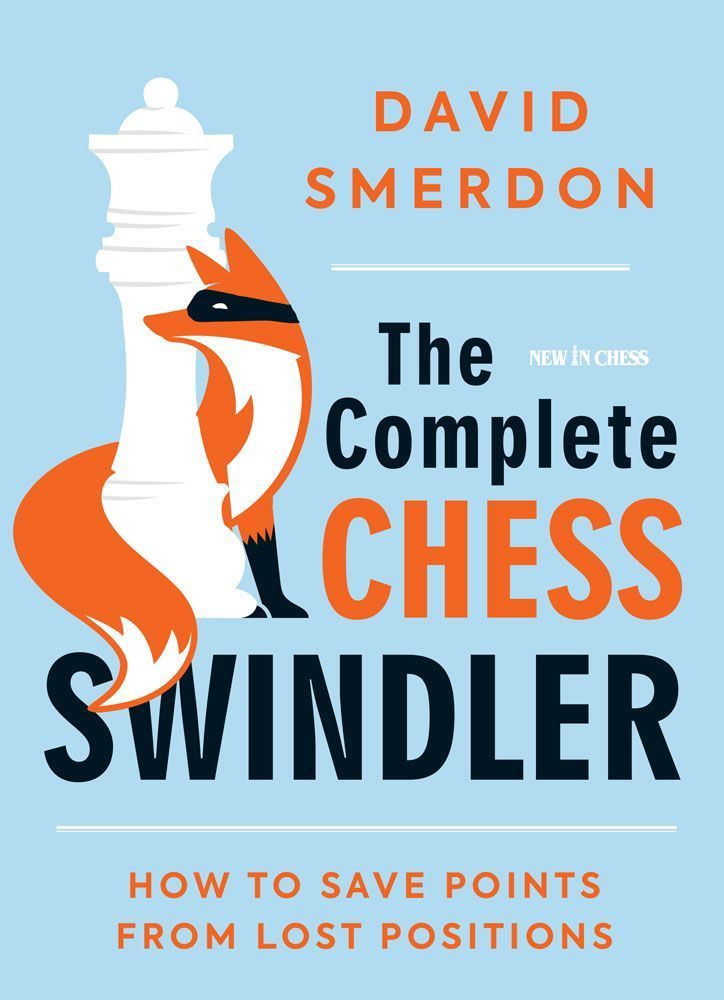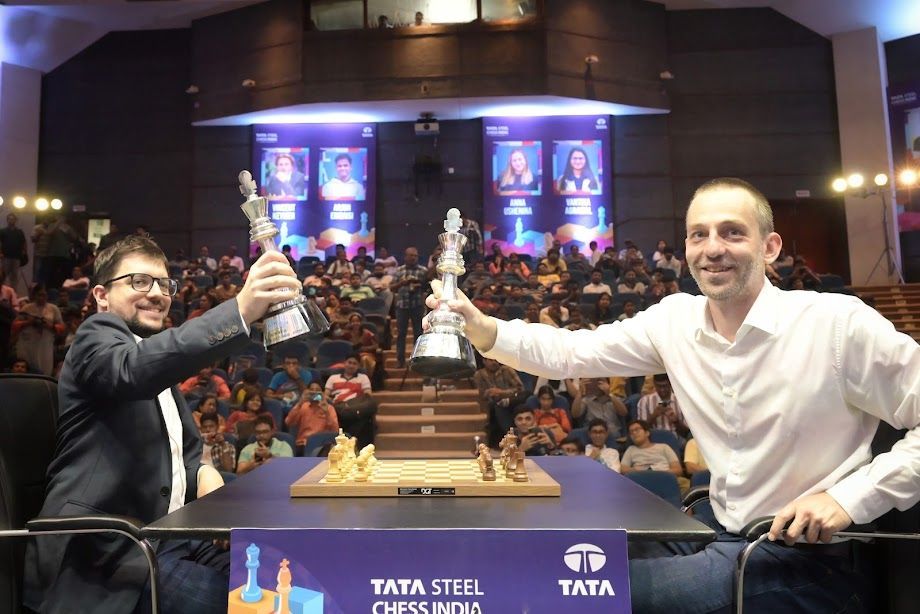Looks Familiar
The only supertournament on German soil this year is a newcomer to the elite-scene, the WR Chess Masters - named after the initials of its sponsor, Wadim Rosenstein - is now underway in downtown Dusseldorf, and runs 15 through 26 February.
There’s something of an air of familiarity to the second supertournament of 2023 with seven of the ten participants also taking part in the recent Tata Steel Masters in Wik aan Zee: Dutch winner Anish Giri, Levon Aronian, Wesley So, Nodirbek Abdusattorov, Dommaraju Gukesh, Rameshbabu Praggnanandhaa and Vincent Keymer; with Ian Nepomniachtchi, Andrey Esipenko and Jan-Krzysztof Duda completing the field.

All eyes will be on top seed and world No 2, Ian Nepomniachtchi to see if he can avoid the unmitigated disaster that befell China’s Ding Liren last month at Wijk aan Zee, so that the Russian, who is playing under the neutral FIDE flag, will go into their upcoming world title match - left vacant with Magnus Carlsen “abdicating” his title - at Astana in April with added confidence.
There was also a look of familiarity to one of the opening round games of the WR Chess Masters, as three-time US Champion Wesley So probably couldn’t believe his eyes as his opponent, Poland’s Jan-Krzysztof Duda, inexplicably walked into a famous tactical trap that was first played during the 1978 Buenos Aires Olympiad. Even your scribe remembers seeing this when he was a precocious young teenage chess fanatic, as he eagerly devoured the-then latest Chess Informant, the fabled Belgrade periodical that ruled when print was still king before the digital era.
This was a really big novelty first seen in the game Portisch-Radulov, and then a few days later, it was also used to good effect in Ribli-Ljubojevic, played in a more laissez faire time before the automatic digital recording of games, as the daily bulletins were printed the next day, and information from recent games wasn’t so “free-flowing” as it is now - hence the reason for Ribli being able to recycle the big Catalan novelty uncorked by his fellow Hungarian top-board teammate in a near carbon-copy win.
Round 1:
So 1-0 Duda
Aronian 1-0 Praggnanandhaa
Esipenko 1-0 Keymer
Nepomniachtchi ½-½ Abdusattorov
Giri
½-½ Gukesh
GM Wesley So - GM Jan-Krzysztof Duda
WR Chess Masters, (1)
Open Catalan
1.Nf3 d5 2.g3 Nf6 3.Bg2 c5 4.0-0 Nc6 5.d4 e6 6.c4 dxc4 7.Qa4 Bd7 8.Qxc4
If you thought you'd probably seen it all before in the Catalan, then you are probably correct, you have! But alas, in this game at least, Duda's chess education seems to be somewhat lacking. 8...cxd4 9.Nxd4 Rc8 10.Nc3 Nxd4 11.Qxd4 Bc5 12.Qh4 Bc6 13.Rd1 Qb6?
Tempted by the "hanging fruit" on f2, Duda remarkably falls into a known tactical trap of four decades standing. Black should play instead 13...Qa5! that prevents the coming tactic, as Black can counter with ...Bxf2+ then ...Kxg7, as now there's no check on g5 as in the game. 14.Bxc6+ Rxc6
[see diagram] So probably couldn't believe his luck here, as Duda falls into what I always thought was a well-known tactic. 15.Bh6! Bf8
The only defence - and this is all still known from the published analysis of the above mentioned brace of 1978 Olympiad games. If 15...0-0 16.Bxg7 Bxf2+ 17.Kh1 Kxg7 18.Qg5+ Kh8 19.Qxf6+ Kg8 20.Ne4! Be3 21.Qe5 f5 (If 21...f6 22.Nxf6+ Rxf6 23.Qxf6 doesn't even bare thinking about.) 22.Rd7 winning. And also no use is 15...Bxf2+ 16.Kg2 gxh6 17.Qxf6 0-0 18.Qxf2 Qxb2 19.Ne4 with a big winning advantage. 16.Rd3!
Simply threatening to double rooks on the d-file, and then crash home the attack. Also, as we see in the game, there are possibilities of a very annoying - and winning - Rb3 (or even Re3+) looming large. 16...Nd5
The d-file has to be blocked, even if it is a futile gesture, as anything else loses very quickly. One example being 16...Qxb2 17.Rb1 Qc2 18.Rc1 Qb2 19.Qf4! Rc8 20.Qa4+! b5 21.Qa6! and Black's position is on the brink. 17.Nxd5 exd5 18.Be3! Qxb2
The only thing Duda can do now is take the pawn and pray for a miracle that So somehow manages to mis-play this wonderful winning position. Not today, thank you very much! 19.Bd4 Qb4 20.Rb3
According to our Silicon Overlord, the clinical kill was 20.Qh5! as Black can't defend the d-pawn with 20...Qd6 down to 21.Re3+ Kd8 22.Rd1 and there's carnage coming down the d-file anyway. 20...Qe7 21.Qxe7+ Kxe7
Duda's king has somehow managed to survive the mating threats - but he's left with a total wreck of an endgame to have to forlornly play on with for a number of moves to make the game look more credible. 22.Rxb7+ Ke6 23.Rb8 h5 24.Rab1 h4 25.Kg2 Kf5 26.Kf3 hxg3 27.hxg3 Rc4 28.e3 Rc2 As Duda can't bring his rook or bishop into the game, I supposse he should have been resigning about here - but you play on regardless, hoping to scrape past the time control to make the loss look more respectable than it really is. We're all
human, after all. 29.R1b5 Kg6 30.Rxd5 Rxa2 31.Rdd8
The rest is just "padding out" the game to the time control before the inevitable resignation. 31...Rh2 32.Rxf8 Raxf2+ 33.Ke4 f6 34.Rb7 a6 35.Ra8 Ra2 36.Raa7 Rh7 37.Kf3 Ra5 38.Rb6 Rg5 39.Kg2!
Praying for 39.Rbxa6?! Rh3 40.Rc7 Rgxg3+ that would at least make White break a sweat to win - but So isn't going to play ball...nor break sweat! 39...a5 40.e4 Rg4 41.Kf3 Rg5 42.Be3 Re5 43.Bf4 Rc5 44.e5! Rh8 45.Rba6 Rd8 46.exf6 gxf6 47.Rxa5 Rc3+ 48.Kg4 1-0










Copyright © 2024. First Move Chess. All Rights Reserved. Deigned and Hosted by JLT Web Design & Digital Marketing. Our Privacy Policy.


